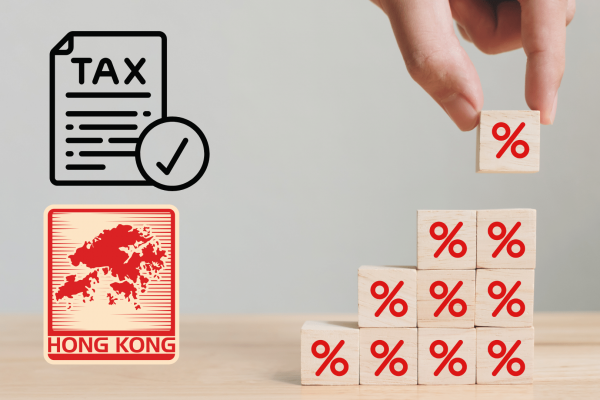Hong Kong Tax on Investment Income (Updated for FSIE Rules)
Hong Kong is one of the most attractive places in the world to generate investment income using securities, such as shares, bonds, funds, futures and options. It is also very common for employers and startup to offer stock options and share awards to employees.
Whether you’re an individual investor or running a company with investment activities, understanding how investment income is taxed (or not taxed) in Hong Kong can make a real difference to your bottom line.
Most Investment Income Isn’t Taxed
Let’s start with the good news: Hong Kong generally doesn’t tax investment income like dividends, interest, or capital gains earned by individuals. As for companies, it is necessary to look into a number of factors to determine the taxability of their investment income.
Using a Hong Kong Company? Be Careful
If you’re investing through a Hong Kong company, or even an offshore company that’s managed from Hong Kong, the situation changes.
A company is generally considered as carrying on a trade/business/profession in Hong Kong if it is managed and controlled in Hong Kong, such as BVI company whose directors are residing in Hong Kong.
Why does the situation change? Because Hong Kong’s tax authorities usually treat these companies as carrying on a business in Hong Kong. That means:
- Your investment gains or income may be taxable (unless they’re from outside Hong Kong and/or capital in nature as well as outside the scope of charge under the Foreign Sourced Income Exemption (“FSIE”) regime).
- You need to be extra careful in how you manage and report those investments.
Individuals Investing Casually Are Safe
If you’re an individual buying and selling securities on the side — maybe through a brokerage account — you’re likely not considered to be running a business. That’s good news.
You won’t pay profits tax on your investment income as long as:
- You’re not trading full-time.
- You’re not relying on it as your main source of income.
- You’re not doing high-frequency or large-volume trades.
In other words, if you’re investing for the long term or as a side activity, you’re probably in the clear.
Location Matters: Where the Income Comes From
Hong Kong tax isn’t just about who you are, but also where the income comes from.
For example:
- Interest from foreign bonds may be non-taxable if the loan (or bond) was issued outside Hong Kong.
- Capital gains from overseas-listed stocks or deals executed outside Hong Kong may also be considered foreign-sourced — and therefore, not taxable.
Each type of income has its own source rules, so it’s important to understand how they apply to your specific case.
Please note that under the FSIE Regime, the foreign sourced passive investment income earned by entities can be subject to tax in Hong Kong if the income falls into the scope of charge and the conditions for that exemption cannot be met.
There have been a lot of tax disputes between the HK-IRD and taxpayers on the above-mentioned tax issues, some of which are appealed to the Board of Review (i.e. a tax tribunal) and even to the Court for determination. HKWJ Tax Law & Partners can assist you at any stage of the tax disputes to protect your legal rights and advise you on tax dispute resolution.





